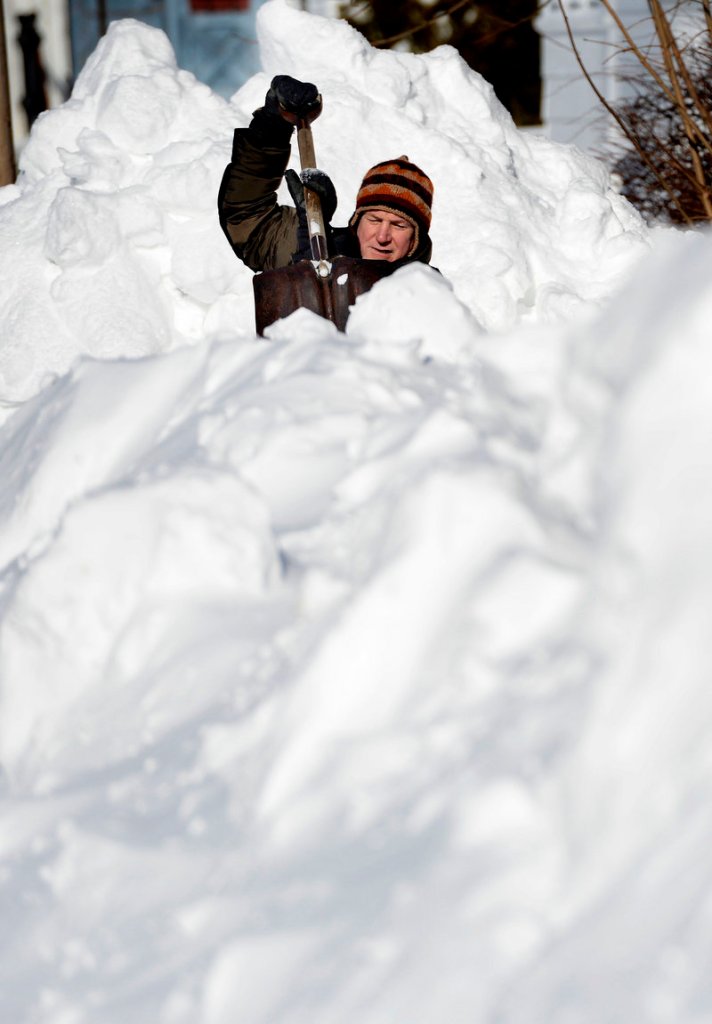One of my favorite Maine stories is about the old farmer who lived in Evans Notch, the mountain valley that cuts through the Maine-New Hampshire border.
One day, a survey crew that was working on the highway knocked at the farmhouse door. After taking measurements on the twisty road, the crew determined that the man’s house actually was in New Hampshire, not Maine. The workers figured the farmer would be upset, but when he heard the news, he let out a cheer.
“That’s wonderful,” he exclaimed. “I didn’t think I could take another one of those Maine winters.”
That story made me think of a national news story from a few weeks ago. According to the National Oceanic and Atmospheric Administration, every state in the country, except Maine, Michigan, Vermont and Wisconsin, experienced extreme weather events that cost more than $1 billion in 2012.
Now, I realize Maine has created a cottage industry around complaining about the weather. It helps keep folksy storytellers and savvy book publishers in business, and discourages pesky tourists from settling here.
But as the NOAA data show, Maine weather is meteorological milquetoast.
That description extends to our most-recent weather event, the Blizzard of 2013. Sure, southern Maine got plastered. But only 10,000 homes lost power at the height of the storm, and most lights were back on within a day. Portland, despite a record snowfall, got its roads open over the weekend and was back in business on Monday.
In Massachusetts, hundreds of thousands of homes lost power, many of them for days. In Boston, streets and sidewalks were so bad that schools didn’t open until Wednesday.
Our weather should be a good-news story for Maine, and a selling point for economic development. But we’re not getting the word out.
On Interstate 95, Gov. Paul LePage put up a sign on the Maine border that reads: “Open For Business.” But so-called job creators know that’s not true. They have learned, because LePage keeps telling everyone, that Maine is an aging, welfare state with high energy costs. And the schools stink.
So, how about a new sign: “Maine: Not a disaster area.”
As our changing climate plays havoc with the weather, Maine should capitalize on its newly recognized competitive advantage. Maybe we’re last on the Forbes Magazine list of business-friendly venues, but we’re at the top of NOAA’s tally of havens from extreme-weather expenses.
We all know weather can attract business. A half-century ago, people migrated to Florida for the weather. Today, who wants to live in a land of killer hurricanes? How about Texas? A dust bowl. The Southeast and Midwest? Tornado alley. The Southwest? Droughts and 120-degree summers.
NOAA has reminded us, extreme weather costs people money. It doesn’t matter how low electric rates are, if the power’s out. It doesn’t matter how good schools are, if they’re closed.
I say: “Gov. LePage, tear down that sign.”
Welcome to Maine: The way weather should be.
Tux Turkel is a staff writer for the Portland Press Herald/Maine Sunday Telegram.
Send questions/comments to the editors.




Success. Please wait for the page to reload. If the page does not reload within 5 seconds, please refresh the page.
Enter your email and password to access comments.
Hi, to comment on stories you must . This profile is in addition to your subscription and website login.
Already have a commenting profile? .
Invalid username/password.
Please check your email to confirm and complete your registration.
Only subscribers are eligible to post comments. Please subscribe or login first for digital access. Here’s why.
Use the form below to reset your password. When you've submitted your account email, we will send an email with a reset code.